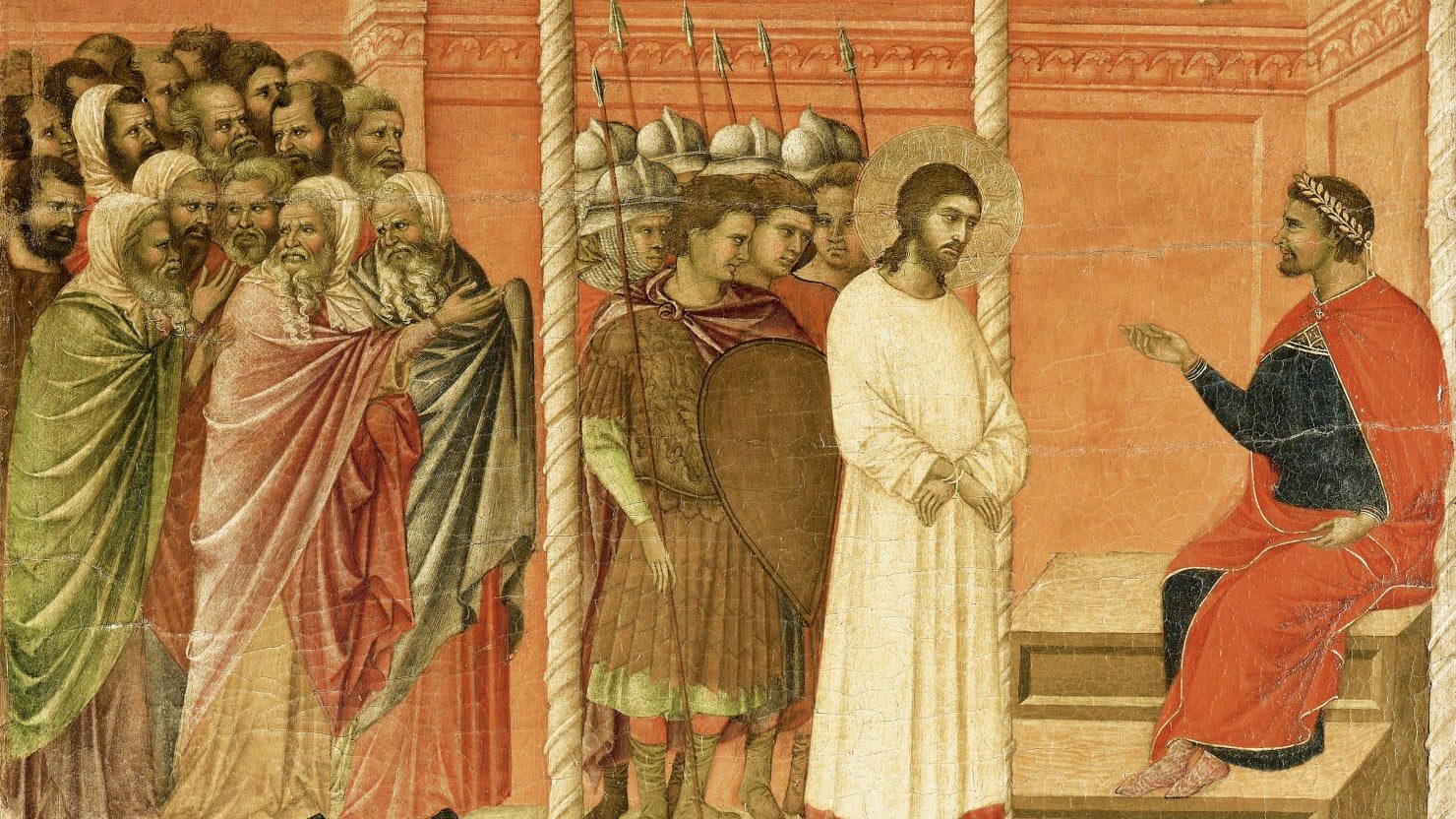Infamous Decisions: Pontius Pilate's Role in the Crucifixion

The crucifixion of Jesus Christ is one of the most profound events in human history, and the role of Pontius Pilate, the Roman governor of Judaea, in this tragic episode remains a subject of historical scrutiny. This article delves into the infamous decisions made by Pontius Pilate during the trial and crucifixion of Jesus, exploring the political, religious, and ethical dimensions that shaped this pivotal moment.
Historical Context:
To comprehend Pilate's decisions, one must consider the complex political climate of Roman-occupied Judaea. Pilate, as a representative of Roman authority, faced the challenge of maintaining order and appeasing the diverse religious and cultural factions within the region.
Trial of Jesus:
The Gospels recount the trial of Jesus before Pontius Pilate, a crucial moment leading to the crucifixion. Pilate, caught between the pressure of the Jewish leaders and the crowd, sought to navigate a delicate balance, attempting to avoid a potential uprising while upholding Roman interests.
The Attempt to Wash His Hands:
One of Pilate's infamous decisions was symbolized by the symbolic act of washing his hands, attempting to absolve himself of responsibility for Jesus' fate. This gesture, while not changing the course of events, reflects Pilate's internal struggle and his awareness of the gravity of the situation.
Political Expediency vs. Morality:
Pilate's infamous decision to crucify Jesus is often seen as a compromise driven by political expediency. Fearing unrest, Pilate may have prioritized maintaining order over moral considerations, leading to the condemnation of an innocent man.
The Inscription on the Cross:
Pilate's decision to place the inscription "Jesus of Nazareth, King of the Jews" on the cross is another controversial choice. Some interpret it as Pilate's subtle mockery of Jewish leadership, while others see it as an ironic acknowledgment of Jesus' divine kingship.
Legacy and Controversy:
The decisions made by Pontius Pilate on that fateful day continue to be a subject of debate among historians, theologians, and scholars. Some view Pilate as a reluctant participant in the crucifixion, while others argue that his actions were driven by self-interest and a desire to maintain Roman control.
Pontius Pilate's role in the crucifixion of Jesus remains a compelling and controversial aspect of the Easter narrative. His infamous decisions, shaped by political calculations, moral dilemmas, and the volatile atmosphere of Roman-occupied Judaea, underscore the complexity of historical events. Pilate's legacy is one that raises profound questions about the interplay of power, morality, and human agency in moments that alter the course of history.
At Kid's Study Bible, we are dedicated to making the Bible come alive for young minds. Our platform offers a rich blend of interactive maps, captivating stories, and engaging resources tailored for children. With a focus on accessibility and understanding, we break down major Bible sections, explore geography, and provide a kid-friendly glossary. Join us on this exciting journey of discovery, where we strive to make learning about the Bible a joyful and enriching experience for every child.
Introduction and Background
- Genesis
- Exodus
- Leviticus
- Numbers
- Deuteronomy
- Joshua
- Judges
- Ruth
- 1 Samuel
- 2 Samuel
- 1 Kings
- 2 Kings
- 1 Chronicles
- 2 Chronicles
- Ezra
- Nehemiah
- Esther
- Job
- Psalms
- Proverbs
- Ecclesiastes
- Song of Solomon
- Isaiah
- Jeremiah
- Lamentations
- Ezekiel
- Daniel
- Hosea
- Joel
- Amos
- Obadiah
- Jonah
- Micah
- Nahum
- Habakkuk
- Zephaniah
- Haggai
- Zechariah
- Malachi
- Matthew
- Mark
- Luke
- John
- Acts
- Romans
- 1 Corinthians
- 2 Corinthians
- Galatians
- Ephesians
- Philippians
- Colossians
- 1 Thessalonians
- 2 Thessalonians
- 1 Timothy
- 2 Timothy
- Titus
- Philemon
- Hebrews
- James
- 1 Peter
- 2 Peter
- 1 John
- 2 John
- 3 John
- Jude
- Revelation